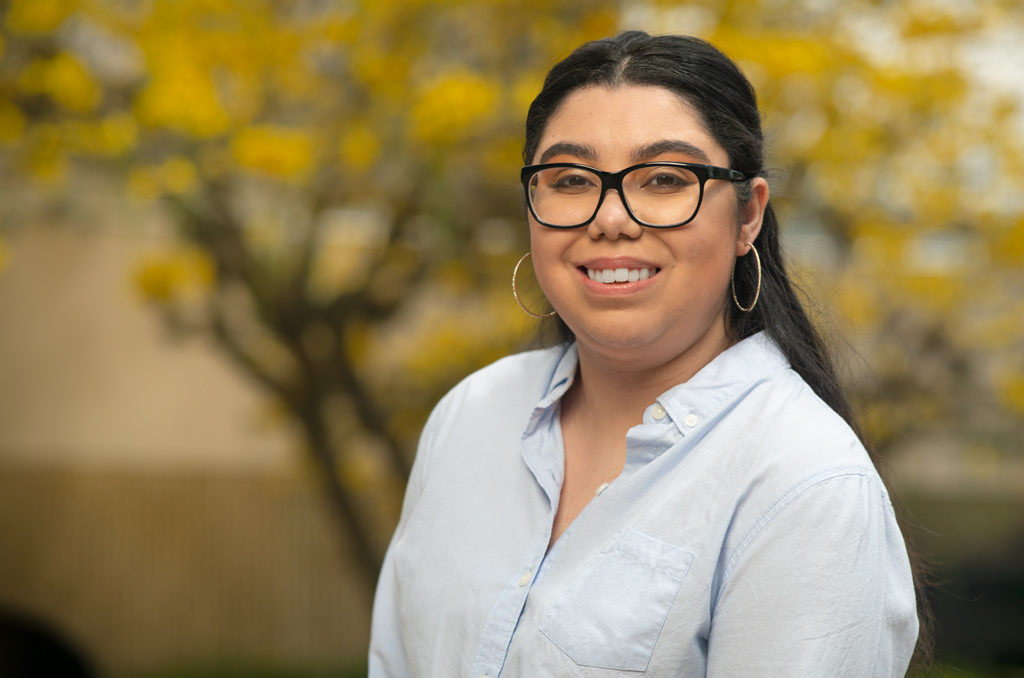No one really expected Hartley Villagra to go to college – let alone excel in college.
In her immigrant family, women prepared themselves for housework, not higher education.
And when she was sent into foster care at age 15, Hartley found that most of the group home staff told her to be realistic about her chances at college.
“In foster care, I was told I could get a minimum wage job and to not worry about college. I was told kids like me don’t succeed.” she says. The odds were undoubtedly against her: Less than 3 percent of foster youth who go to college end up completing their degree.
That only steeled Hartley more.
“The more they told me no, the more I wanted to go…I wanted to prove them wrong,” she says.
Housed in multiple different group homes, she attended various high schools throughout the state – moves that typically set foster-care students back at least a year with every change – but Hartley refused to fall behind. At each new group home, she reminded the staff that she wanted to go to college— until she found someone who shared her dream. In 2016, she met her youth advocate, who encouraged her not to give up.
“Statistics show that 50 percent of foster kids graduate from high school, and only 10 percent even apply to college. Good thing I was so hard-headed!” says Hartley.
Her perseverance paid off at Valencia, where she thrived. After a rocky first semester, she began to feel at home on campus. “I loved it, primarily because of these incredible professors,” she says. “When you sign up for classes, you don’t really know what kind of professors you’re going to get. But they were funny; they were witty; and they were always happy. I loved it.”
Eager to get more involved on campus and become more confident, Hartley signed up for the college’s speech and debate team and became an award-winning member. In her third semester, Hartley was accepted into the Seneff Honors College, and was also inducted into Phi Theta Kappa, the national honor society for two-year colleges.
Meanwhile, at her group home, where she was the first person to attend college, younger kids watched her shine. “I’m most proud of setting a positive precedent for other foster kids. For most of them, there is no role model, no straight path to go to college,” she says. “I get so excited when these little kids come up to me and ask me what college is like. I want them to see themselves as worthy of going to college. I want to be the one to tell them ‘yes.’”
As a college student, Hartley regularly faced obstacles that others may not understand. Because she had to take the bus to Valencia, she learned not to take 9 a.m. classes – because it would be challenging to get there on time. She also stayed on campus all day, studying between classes and after classes, before taking the bus home at night.
When the pandemic forced classes to move online, Hartley faced other problems. At the group home, it was difficult to find a quiet space. So she had to take online classes and study with kids running up and down the hallways and noise constantly streaming in. Worried that she would have trouble in class, so reached out to professors and classmates to get help when she struggled and vowed to apply herself more.
Graduating from Valencia with honors at 19, Hartley was a finalist in the running for Valencia College’s Mary S. Collier Distinguished Graduate for 2021. Next she’s transferring to the University of Central Florida, where she plans to major in criminal justice. After that, she plans to attend law school at Florida A&M University and become an advocate for foster youth.
And for that, she wants to thank everyone who said she couldn’t do it.
“I want to thank everyone who doubted me,” says Hartley, “because my dreams were far louder than their criticisms.”
